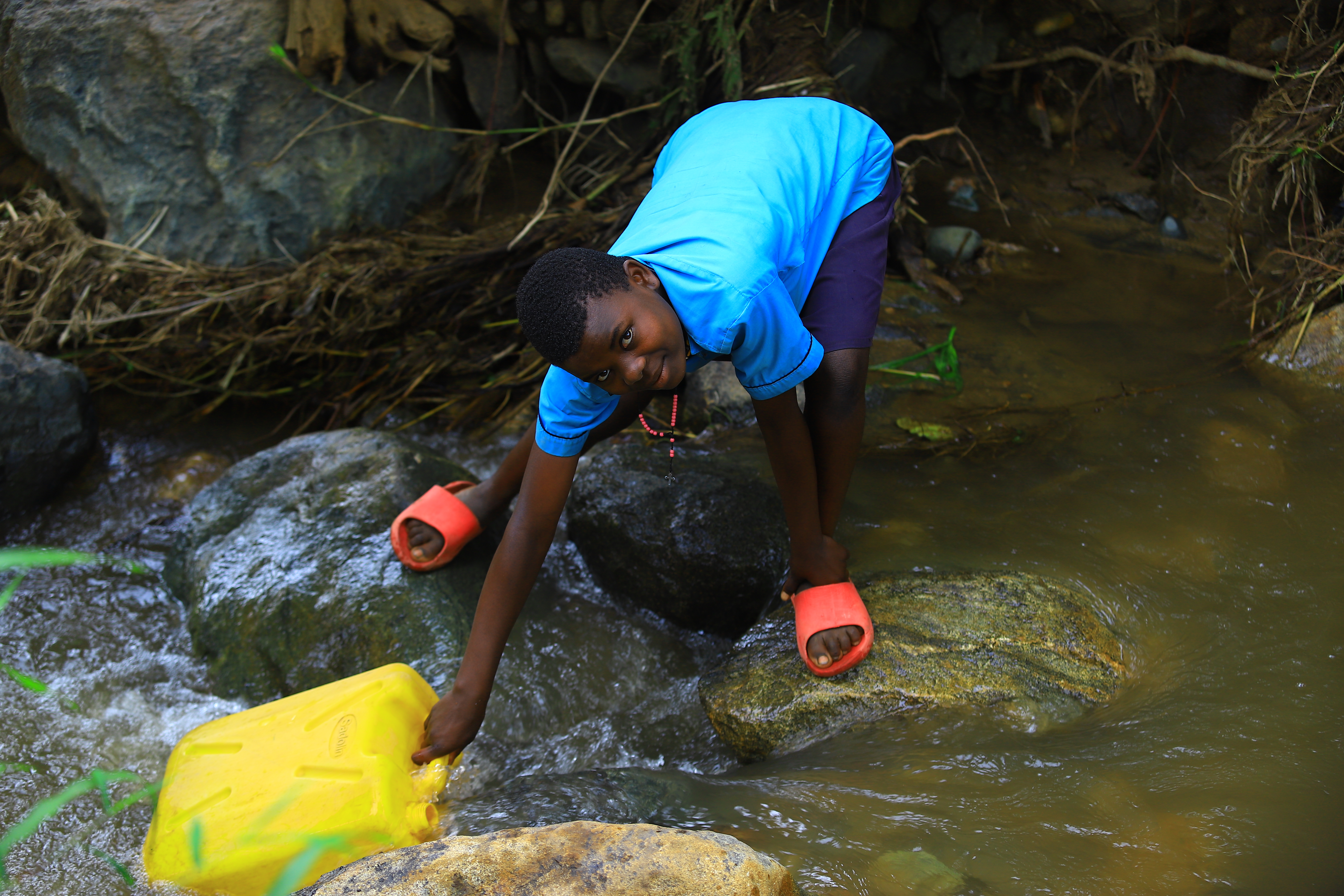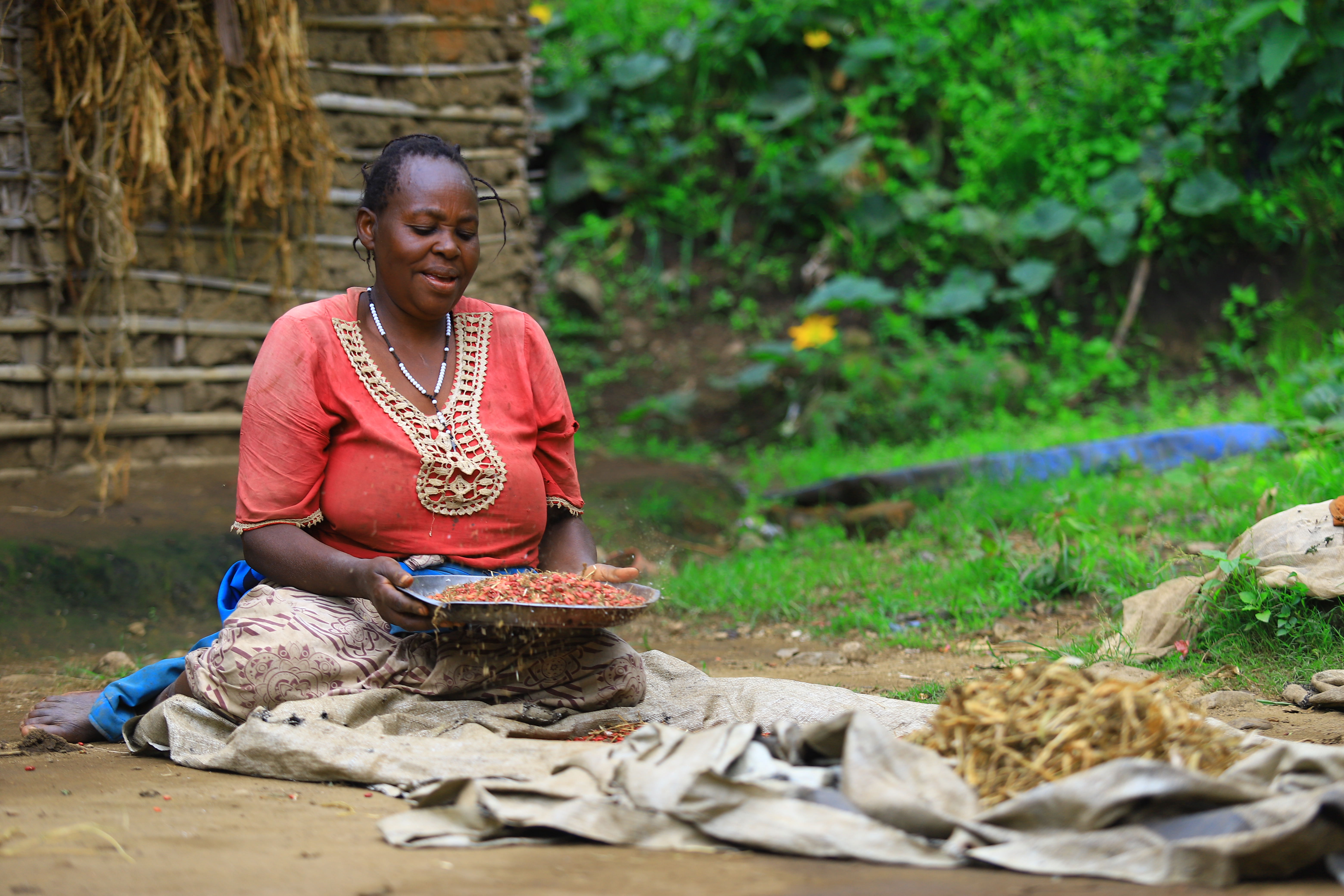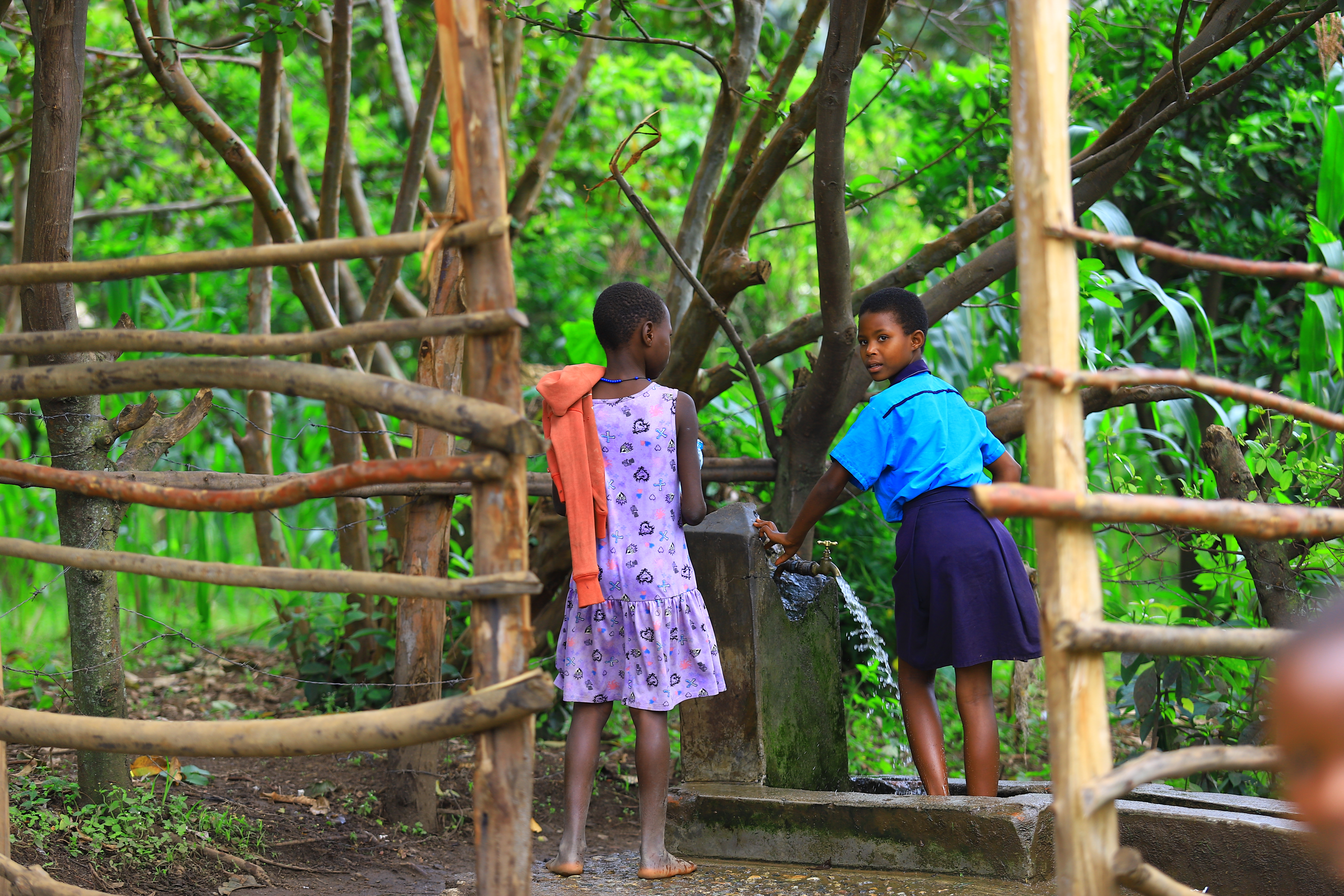WASH, Learn & Share: Pupils as changemakers in Uganda
No toilet and no water? No school. This is how Simavi creates a new generation of WASH-leaders together with Ugandan pupils and their families
Only 2 bathrooms for a few hundred pupils and no drinking water at school. It is the reality for more than 50% of school-going children in Uganda. Simavi’s WASH, Learn & Share programme aims to change this by empowering students to advocate for their own WASH needs and those of their communities.
From 2016 until 2023, Simavi worked in schools across Uganda to provide them with safe water and accessible toilets under the WASH & Learn programme. In 2024, we continued these efforts with the WASH, Learn & Share programme. This programme takes schools as a starting point for health and well-being for whole communities. By listening to the needs of students and helping them advocate for their rights to water and sanitation, they can become changemakers for their communities.

Affecting grades and school performance
‘There is only one block of toilets for all the girls in the school, so we all must line up and wait a long time to use the bathroom.' Cecilia Kebirungi is 12 years old and struggles a lot because of the lack of toilets at school. She attends Kinyankende Primary School, one of the many schools that lack water and sanitation services. The lack of toilets has negative effects on the school performances of students, especially the girls. 'The bathroom also does not have doors so there is no privacy at all. This is especially hard when I have my period.’
‘Sometimes, the school has to close because the toilets are broken,’ her classmate Evelyne Kabalodi (12) explains. Other times, she has to miss school because there is no water, and she is thirsty. ‘I want to become a nurse when I grow up, but I cannot always attend class, and I have missed my exams. I worry my grades are not good enough.’

Floods, snakes and violence
The lack of water and sanitation is not only an issue at schools. Many students face the same problems at home. Evelyne lives with her grandparents and her three sisters. For her grandmother Goretti, fetching water is a daily struggle. ‘I have grown old, and I wish that I could rest. But water is a necessity. We cannot cook, drink or bathe without it. I must fetch it every day or my grandchildren will be thirsty and hungry.’ She has to fetch the water from the nearby river, but it is often too dirty to drink or cook with. During the rainy season, the riverbanks flood and fetching the water becomes a very dangerous task.
The lack of water and toilets affects the entire community. Almost no households have water from the tap. Cecilia’s mother Veronica is on the local council for the Mugusu Sub County. In her role she advocates for gender equality, health, education and sports. But while she advocates for other people’s health and wellbeing, she does not have access to some basic services herself.
‘We have a toilet outside, made from mud and wattle, but at night it is dangerous. I fear for the safety of my daughter and myself, so we go in a bucket at night.’ The traditional outside latrines that many Ugandan households have, pose risks. At night, people have to watch out to not get bitten by snakes. And some women and girls are afraid they could be at risk of sexual harassment or intimidation while going to the toilet outside.

Children's parliament
The situation of Cecelia’s and Evelyne’s school and community reflects the broad water and sanitation issues in Uganda. The WASH, Learn & Share programme aims to use sustainable and locally led solutions to tackle the water and sanitation problems at schools. An important element of the programme is enhancing citizen participation. School pupils are given the chance to be part of a so-called 'children's parliament', a programme where they are invited to speak in front of the local council about the WASH issues they face at school and at home.
But the programme does not stop at the schools: Parents are also encouraged to get involved with the programme. They are invited to the schools to discuss and learn about WASH solutions. This is how Veronica and a number of other parents at the school started discussing how to improve the water gravity flow scheme in their village. To make sure everyone receives water from the river, they received training about how they can best advocate for their needs to the local government.
On the community level, the WASH, Learn & Share programme also works on sustainable and creative solutions together with local entrepreneurs. During a hackathon teams of entrepreneurs brainstormed together on innovative and local solutions for water problems. Many of these solutions start in schools but are also able to be scaled up to communities. For example, one entrepreneur started a fecal sludge management cost-recovery scheme together with local pit emptiers. Together they work to keep school latrines clean for a low amount of money, something that did not happen before.

WASH clubs
Cecilia has joined the WASH club at her school. Evelyne hopes to be able to join soon. This club gives the girls the ability to learn not only practical knowledge about WASH, but also about their rights and health. Some members of the WASH club also got to be part of the children's parliament. This has already reaped some great results. Soon, their school will get new toilet blocks. Cecilia hopes this will give her time to spend doing things she enjoys instead of waiting for the toilets. ‘Hopefully, I will have enough time at school to study harder but also do things I enjoy, like sports and drama.’
Veronica also continues to work hard on ensuring her daughter never has to walk or wait for water and the toilet again. ‘We have set up a tap water scheme with an umbrella organisation in the community. The few households that can afford water from the tap distribute it to the other households for a bit of money. That way we don’t have to walk to the river.’


